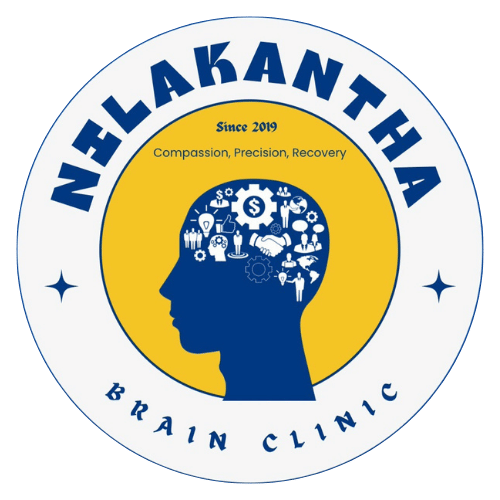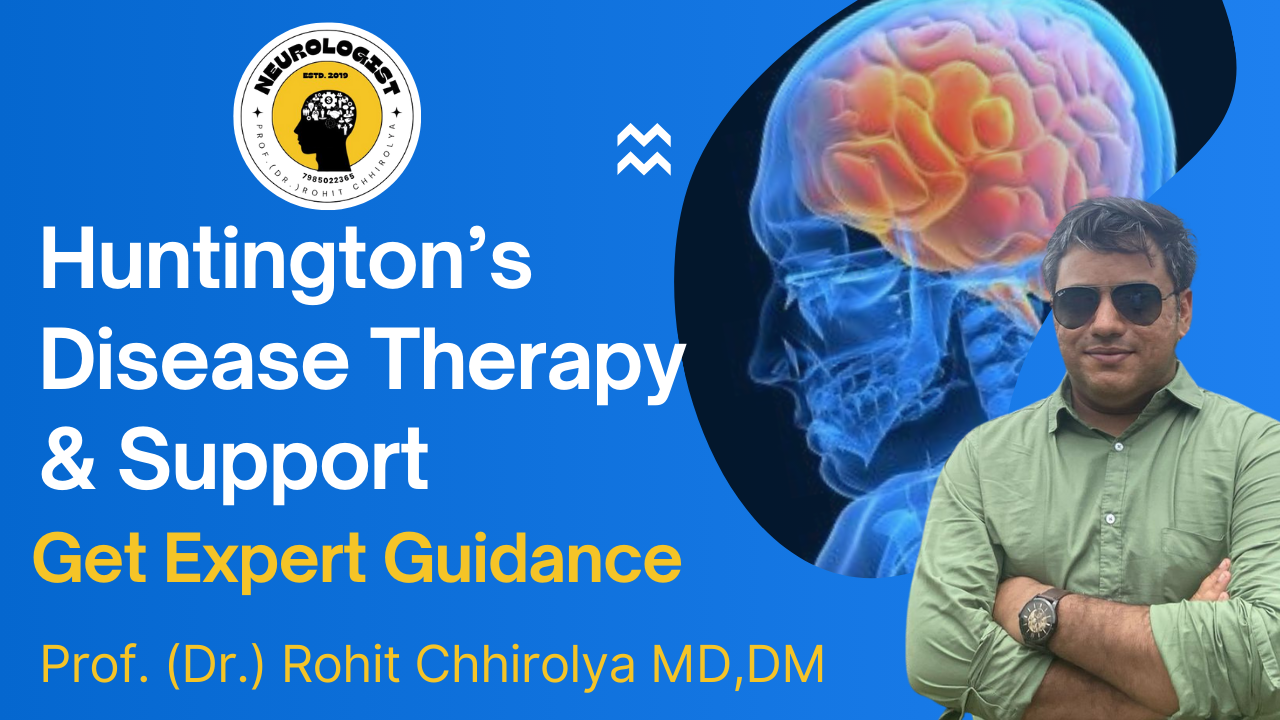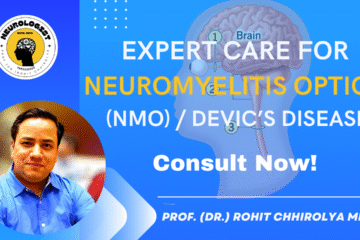Table of Contents
- What is Chorea?
- Types of Chorea
- Symptoms of Chorea
- Causes and Risk Factors
- Diagnosing Chorea
- Treatment Options
- Why Choose Nilakantha Brain Clinic?
- How to Find the Best Neurologist Near You
- Living with Chorea
- Conclusion
What is Chorea?
It is a neurological disorder characterized by involuntary, irregular, and unpredictable movements that appear fluid or dance-like. These movements often affect the hands, feet, and face, disrupting daily activities. It can be a symptom of underlying conditions like Sydenham’s chorea (linked to rheumatic fever) or Huntington’s disease (a genetic disorder). Early diagnosis by the best neurologist in Cuttack is critical for effective management.
Types of Chorea
- Sydenham’s Chorea (St. Vitus Dance):
- Occurs in children after untreated streptococcal infections (e.g., rheumatic fever).
- Symptoms resolve within months but require prompt treatment.
- Huntington’s Chorea:
- A progressive genetic disorder caused by a mutation in the HTT gene.
- Leads to motor, cognitive, and psychiatric decline.
- Drug-Induced Chorea:
- Triggered by medications like levodopa or antipsychotics.
Consult a top neurologist in Cuttack like Prof. Dr. Rohit Chhirolya to identify the type and cause.
Symptoms
- Involuntary Movements: Jerky, flowing motions in limbs or face.
- Milkmaid’s Grip: Irregular squeezing of objects due to hand muscle contractions.
- Speech Difficulties: Slurred or halting speech.
- Gait Abnormalities: Unsteady walking or frequent stumbling.
- Cognitive Changes: Memory loss (in Huntington’s disease).
If these symptoms persist, seek a neurology doctor in Cuttack for evaluation.
Causes and Risk Factors
- Genetic Mutations: HTT gene in Huntington’s disease.
- Infections: Untreated strep throat leading to Sydenham’s chorea.
- Metabolic Disorders: Hyperthyroidism or electrolyte imbalances.
- Autoimmune Conditions: Lupus or antiphospholipid syndrome.
Diagnosing Chorea
Diagnosis involves:
- Clinical Evaluation: Observing movement patterns and medical history.
- Blood Tests: Detecting streptococcal antibodies or genetic mutations.
- MRI/CT Scans: Identifying brain atrophy (common in Huntington’s).
- Electroencephalogram (EEG): Ruling out seizures.
At Nilakantha Brain Clinic, the best neurology specialist in Cuttack uses advanced tools for accurate diagnosis.
Treatment Options
1. Medications
- Antipsychotics (Tetrabenazine): Suppress dopamine to reduce movements.
- Antibiotics (Penicillin): Treat Sydenham’s chorea by eradicating strep infections.
- Immunosuppressants: For autoimmune-related chorea.
2. Therapies
- Physical Therapy: Improves coordination and balance.
- Speech Therapy: Addresses communication challenges.
3. Advanced Interventions
- Deep Brain Stimulation (DBS): For severe Huntington’s-related chorea.
Collaborate with the best neurologist doctor in Cuttack to tailor a treatment plan.
Why Choose Nilakantha Brain Clinic?
- Expertise: Prof. Dr. Rohit Chhirolya, a DM Neurologist, specializes in movement disorders.
- Genetic Counseling: Guides families with Huntington’s disease.
- Multidisciplinary Care: Combines neurology, physiotherapy, and mental health support.
Searching for a neuro doctor in Cuttack? Check the Cuttack neurology doctor list or visit Nilakantha Brain Clinic.
How to Find the Best Neurologist Near You
- Specialization: Look for experience in chorea and Huntington’s disease.
- Technology: Ensure access to genetic testing and MRI.
- Patient Reviews: Testimonials highlight empathy and success rates.
Dr. Chhirolya, recognized as the top neurologist in Cuttack, offers compassionate care for complex cases.
Living with Chorea
- Adaptive Devices: Use weighted utensils or non-slip mats.
- Support Groups: Join communities like NHPians on Facebook for emotional support.
- Regular Monitoring: Schedule follow-ups with your neuro doctor near me.
For resources, follow Dr. Chhirolya on Instagram and YouTube.
Patient Success Stories
Case 1: Arvind’s Journey with Huntington’s Disease-Related Chorea
Age: 38 | Condition: Huntington’s Disease (HD)
Arvind, a banker from Cuttack, noticed involuntary jerking movements in his arms and legs, along with mood swings and slurred speech. Genetic testing confirmed Huntington’s disease. At Nilakantha Brain Clinic, Dr. Rohit Chhirolya designed a plan:
- Tetrabenazine: To reduce dopamine levels and control chorea.
- Physical Therapy: Balance training to prevent falls.
- Cognitive Behavioral Therapy (CBT): For depression and anxiety.
- Genetic Counseling: For his family to assess HD risk.
Outcome:
- Chorea reduced by 60% within 3 months.
- Arvind returned to work part-time using voice-to-text software.
- His family now attends monthly support groups at the clinic.
“Dr. Chhirolya didn’t just treat my movements—he gave me hope to fight HD,” says Arvind.
Case 2: Priya’s Recovery from Sydenham’s Chorea
Age: 9 | Condition: Sydenham’s Chorea (Rheumatic Fever Complication)
Priya developed sudden arm-flailing movements and irritability weeks after a strep throat infection. Diagnosed with Sydenham’s chorea, Dr. Chhirolya’s team at Nilakantha Brain Clinic prescribed:
- Antibiotics: Penicillin to eradicate residual strep infection.
- IV Immunoglobulin (IVIG): To calm autoimmune attacks on the brain.
- Valproic Acid: For seizure-like chorea episodes.
- Occupational Therapy: To regain fine motor skills for writing.
Outcome:
Priya resumed school and won a drawing competition 3 months later.
“We thought she’d never hold a pencil again,” her mother shares. “Today, she’s back to her artistic best!”
Chorea resolved completely in 6 weeks.
Conclusion
This disease requires specialized care to manage its physical and emotional impacts. Whether you need genetic testing, medication adjustments, or advanced therapies, the best neurology specialist in Cuttack at Nilakantha Brain Clinic provides comprehensive solutions. Act now—call 7985022365 or visit their website today!



